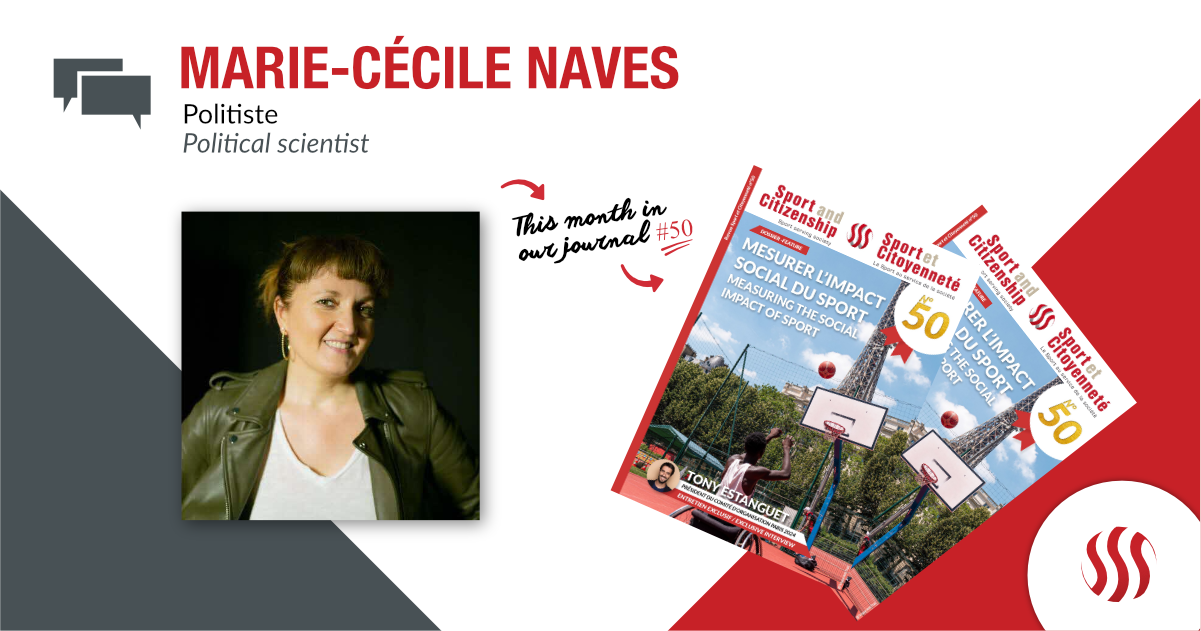
Gender equality: when will sport make use of academic research?
Gender equality : when will sport make use of academic research?
Sport thinks of itself as virtuous, exercising the universal values of meritocracy and respect. It needs to show this more than ever, in the short and long term. To do this, it is essential for it to rely on academic research in human and social sciences.
 Marie-Cécile NAVES
Marie-Cécile NAVES
Political scientist
Member of the Sport and Citizenship Think Tank’s scientific committee
Major sporting events make a big show of insisting on gender equality. What is the reality beyond the slogans, the (occasional) stances taken against sexism, and a renewed sense of self-satisfaction? There are very few tangible indicators and follow-ups on “legacy” policies (before and after competitions). What are we talking about here? If we look at bonuses and salaries, training conditions, access to facilities, media coverage (in quantity and quality) for professionals as well as amateurs, governance, and the growth of regular sport and physical activity, where is the much-vaunted progress made since, in particular, the 2019 Women’s Football World Cup? What schemes have been implemented, and with what results? Where is the long-promised accelerator of social change?
Everywhere on the planet, gender inequality has increased with the health crisis. The sport sector has not escaped this: judged to be “non-essential”, amateur sport has been sacrificed, both its routine practice and its competitions. As women’s sport has been affected more than men’s, the consequences for women athletes are disastrous. So is the message this sends out to the whole of society: women continue to take a second place.
“Systematic consideration of gender issues”
The aim, for girls and women, remains that of moving from the margin to the centre, to paraphrase the scholar and activist bell hooks. To arrive at gender equality will require a radical transformation of society. Systematic consideration of gender issues will enable the whole of sport to improve. Conversely, at a time when Covid-19 means we need to support one another more, and to look out for each person’s vulnerabilities, sport has vital tools for contributing to building the community. Yet the only concern seems to be the collapse of economic models which are very expensive, probably out-of-date and limited to certain men’s sports.
Sport does not have a magic formula for changing society and gender relations in society, but it considers itself to be virtuous, and continues to claim for itself the universal values of meritocracy and respect. It needs to show this more than ever, in the short and long term. Measuring the impact of public and federal policies is vital. It is essential for it to rely on the methodology of academic research in human and social sciences. This means choosing a rigorous approach and betting on the long term. It is a political as much as an epistemological issue. If the promises of national and international bodies to contribute to gender equality are to be kept, and the strong expectations of society in this area are to be satisfied, sport must increase its expertise, and to do this, it needs to open up to researchers. The work done by the Sport and Citizenship Think Tank is a move in the right direction.
